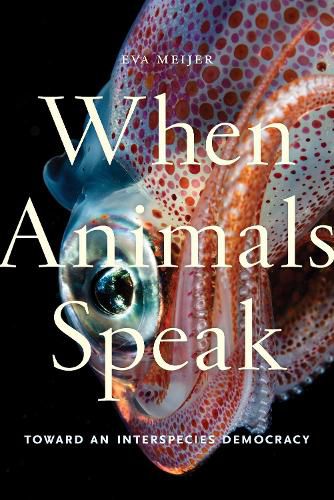Readings Newsletter
Become a Readings Member to make your shopping experience even easier.
Sign in or sign up for free!
You’re not far away from qualifying for FREE standard shipping within Australia
You’ve qualified for FREE standard shipping within Australia
The cart is loading…






Winner, 2020 ASCA Book Award, given by the Amsterdam School of Cultural Analysis
A groundbreaking argument for the political rights of animals
In When Animals Speak, Eva Meijer develops a new, ground-breaking theory of language and politics, arguing that non-human animals speak-and, most importantly, act-politically. From geese and squid to worms and dogs, she highlights the importance of listening to animal voices, introducing ways to help us bridge the divide between the human and non-human world.
Drawing on insights from science, philosophy, and politics, Meijer provides fascinating, real-world examples of animal communities who use their voices to speak, and act, in political ways. When Animals Speak encourages us to rethink our relations with other animals, showing that their voices should be taken into account as the starting point for a new interspecies democracy.
$9.00 standard shipping within Australia
FREE standard shipping within Australia for orders over $100.00
Express & International shipping calculated at checkout
Winner, 2020 ASCA Book Award, given by the Amsterdam School of Cultural Analysis
A groundbreaking argument for the political rights of animals
In When Animals Speak, Eva Meijer develops a new, ground-breaking theory of language and politics, arguing that non-human animals speak-and, most importantly, act-politically. From geese and squid to worms and dogs, she highlights the importance of listening to animal voices, introducing ways to help us bridge the divide between the human and non-human world.
Drawing on insights from science, philosophy, and politics, Meijer provides fascinating, real-world examples of animal communities who use their voices to speak, and act, in political ways. When Animals Speak encourages us to rethink our relations with other animals, showing that their voices should be taken into account as the starting point for a new interspecies democracy.